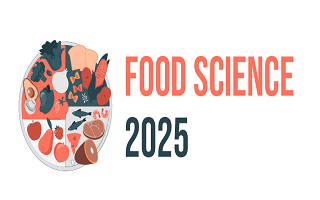2nd International Conference on
Food Science and Technology
September 19-20, 2025 | Online
Food Science 2025

The Chinese University of Hong Kong, Hong Kong
Abstract:
Brown adipose is capable of dissipating extra energy in the form of heat. Studies in the past decade haveshown that enhancing adipose tissue browning is sufficient to confer protection against obesity, diabetesand cardiovascular diseases. Therefore enhancing adipose tissue activity in adult human is clinicallyfeasible and is now regarded as a new therapeutic strategy to combat obesity and metabolic diseases.Rhubarb has been implicated to have anti-obese, anti-diabetic effect, but the mechanism underlying thisphenomenon is unclear. By evaluating the major components in Rhubarb, we found one of the components,rhein, is potent in potentiating adipose browning in mouse and human brown adipocyte and adipose tissues.Mice fed with rhein showed significantly improved obesity, adiposity, and insulin resistance, which isaccompanied by increased adipose tissue browning, and whole body energy expenditure rate. Byimmunoprecipitation, we characterized ARGLU1 as the direct target of rhein to mediate its action, whichis a key co-activator of glucocorticoid receptor. Subsequent in vitro and in vivo studies showed that rheintreatment enhances adipose tissue browning via mitigating glucocorticoid-induced suppression of brownadipose activity. Interestingly the anti-inflammatory effect of glucocorticoid is not affected. In summary,the current study demonstrates rhein as the major component in Rhubarb that enhances adipose browningand energy expenditure. The results will shed new light on the benefits of rhein in adipose browning, andsupport Rhubarb as the Chinese medicine used to improve adipose browning
Biography:
Dr. Hannah XY Hui has completed her PhD in Chinese Academy of Sciences and continued her postdoc
training in The University of Hong Kong. She is currently the assistant professor in School of Biomedical
Sciences, The Chinese University of Hong Kong. Her research interest lies on adipose tissue, in particular
how adipose tissue is remodeled in response to different nutritional conditions and stresses. Her work
recently uncovered the role of various physiological, hormonal and nutritional cues in adipose tissue
remodeling, such as lactate, androgen, thyroid hormones.
